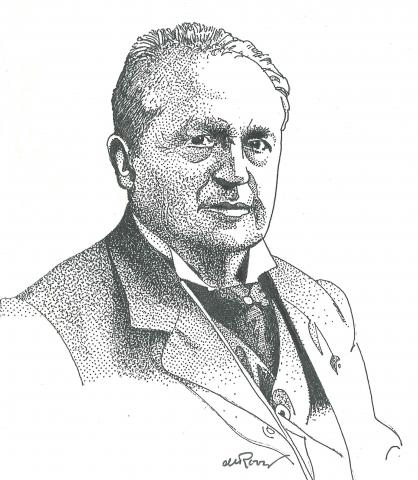A revised and updated version of
Abraham Kuyper: An Annotated Bibliography 1857-2010 by Tjitze Kuipers (2011)
You can buy a printed edition of this book on the site of the publisher.
1869
An editorial program of principles and goals for a proposed Christian national daily (cf. 1985.03).
While the annual meeting of the Union for Christian National Primary Education was being opened in Utrecht on May 19, 1869, another meeting made the decision in the same city on the same day to circulate a plan for a Christian newspaper among potential readers and financial supporters. The main issues raised in the five pages of this text are, in a nutshell, those which later received broad examination in “Ons program” (see 1879.04).
This item belonged with other pieces to a mailing that was sent to carefully selected recipients to elicit financial support for the new paper. The mailing consisted of: (1) an accompanying letter signed by J.J. Teding van Berkhout, Ja. van Eik, and W. van Oosterwijk Bruyn and dated Amsterdam, May 21, 1869; (2) a confidential, unsigned circular letter “Aan het Nederlandsche volk” [To the Dutch people] with the superscription “Christelijk nationaal dagblad ‘Nederland en Oranje’” [Christian national daily “The Netherlands and the House of Orange”] dated Utrecht, May 19, 1869; and (3) a subscription form toward the estimated ƒ5,000.- of producing a sample run.
According to De Heraut (no. 32, August 11, 1871), 16,000 flyers titled “Vrienden van Nederland en Oranje!” [Friends of the Netherlands and the House of Orange!] were distributed among the participants in the mission festival held at the estate of Houdringen near De Bilt. The flyer advertised a one-year trial subscription for a soon-to-be-published Christian Historical daily (with a Sunday edition). Although this particular initiative for a national Christian newspaper did not get off the ground, three years later these principles and plans came to fruition with the founding of De Standaard (see 1872.02).
In his study “New London on the Rijn as fata morgana: Utrecht 1867–1870,” which was published in his valedictory collection (see 2006.02), J. Vree shows (on pp. 277–280) that Kuyper was the author of this editorial program. The three aforementioned Amsterdam entrepreneurs who backed the new paper softened forceful passages here and there in the text and recast some of the concepts Kuyper used in contemporary Dutch—for example, Kuyper’s favorite term “autonomy” was consistently changed to “independence,” likely thus effacing his fingerprints from the document.

